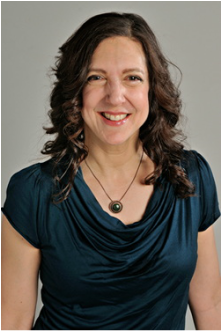Career Counseling. |
|
Most of us spend the largest portions of our waking hours at work. Isn't it worth investing some time and energy in the short run to create a more-fulfilling work life in the long run?
As a career consultant, I assist and guide clients in career exploration, career transition, and job searches. Clients seek my services in order to:
|
|
Careeer Counseling and
Psychotherapy Compared In some ways, career counseling is like psychotherapy; in other ways it's different. Career counseling is similar to psychotherapy in that we start by understanding the problem(s) you want to address with my help, and then we work together to co-construct achievable goals. Another way career counseling is similar to psychotherapy is that both you and I will be active during meetings. You will be asked to put 100% effort toward creating a truly satisfying work life, while I bring the best of my training, experience and guidance to your particular circumstances. One way career counseling is different from psychotherapy is that career counseling is much more content driven, and typically focuses on what needs to be done to help you create a satisfying work life. That might include completing a career-assessment process, reviewing your job-application materials, or practicing mock interviews. Another difference from psychotherapy is that career counseling often involves actions that are usually performed outside of the meeting time. Some examples: conducting information interviews, reading about occupations, researching career information on the Internet, and updating a LinkedIn profile. One more difference between career counseling and typical psychotherapy relates to scheduling. With career counseling, meetings may be less frequent. Meetings may vary from once a week to once every 2–3 weeks, depending on your goals. What’s key is setting up the session format to best support your career objectives. |
Where I Can Help:
Some Real-Life Examples Consider the common experience of being laid off from a job without warning or reason. Such a shock often leaves people reeling; it can shake their self-confidence to the core. Without an effective, safe outlet for resolving the mixed feelings from that experience, many people become depressed and lose the motivation to find new work; others become anxious, and procrastinate on job-search tasks or even stop looking altogether. (I write about this phenomenon in A Critique of Career Self-Reliance [PDF].) Often, people are faced with long stretches between jobs. Even if they have left work voluntarily, they may have difficulty staying upbeat as well as managing their time effectively in the search for a new, more satisfying position. This makes sense: A job may be a source of connection and camaraderie, and can provide an environment where people feel useful. When such regular contact and structure are no longer available, some people lose their sense of self-worth. (I've written about this in Maintaining Self-Esteem in an Uncertain Job Market.) Many other kinds of circumstances make career transitions challenging emotionally as well as logistically and intellectually. If you are currently struggling with staying focused and moving forward in your job/career search, I can help you. |
My Career-Counseling
Training and Approach My approach to career counseling is informed by, among others, the work of Krumboltz and Levin, who wrote Luck is No Accident: Making the Most of Happenstance in Work and Life. In this approach, clients and counselor are both active. I teach you how to generate and capitalize on unplanned events in order to create new opportunities for yourself. The skills you develop and nurture in this approach, such as curiosity, flexibility, and persistence, may benefit you not just in your career search but in your work life and personal life as well. For more about my approach, feel free to refer to these articles:
|
|
|
| “ |
I have watched Diane Byster grow into a highly professional, competent and effective career counselor. Her mastery of the technical/content aspects of this work, along with a deep intuition, make for a trustworthy, experienced coach. — Diane Jordan Wexler
|
” |
| “ |
I am a colleague of Diane’s and co-created and taught a career counseling course at Sofia University in Palo Alto, CA. Diane is the utmost professional. Her ability to collaborate, organize materials, and deliver her subject matter is impressive. Diane’s knowledge in the career counseling field is expansive. Her dual approach of coupling therapy and career counseling is unique, and allows her to guide clients through a host of different situations that are unparalleled among career counselors. Working alongside Diane has been a tremendous experience. — Ellen Shulman, MA
|
” |
